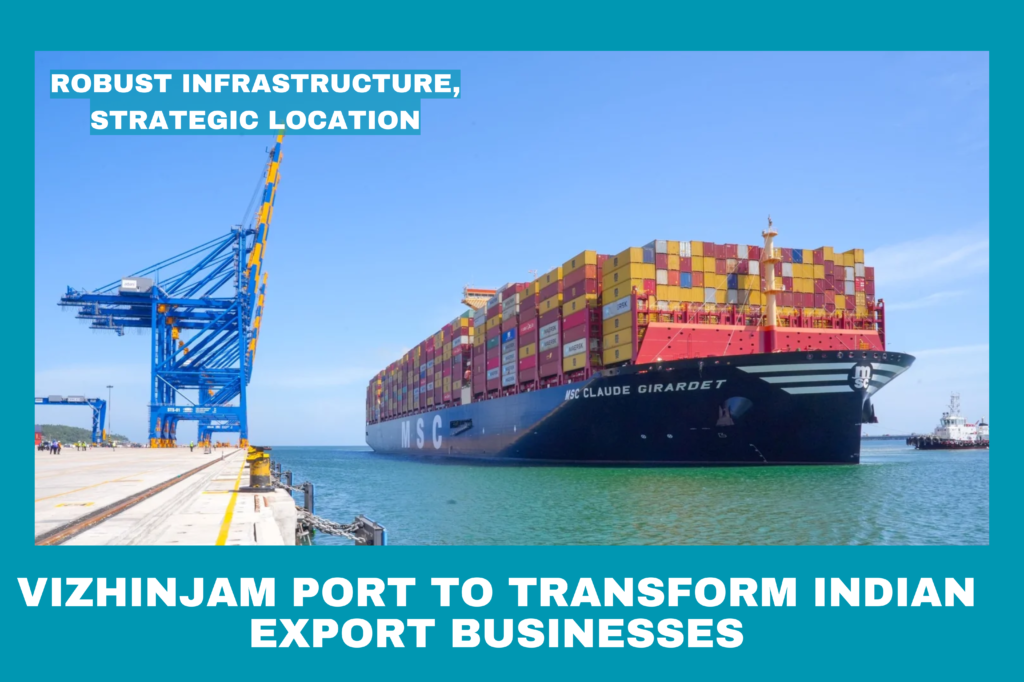
How Vizhinjam Port can transform India’s export business significantly?
1. Reduces Dependence on Foreign Transshipment Ports.
Currently, a large share of Indian container cargo is transshipped through foreign ports like Colombo, Singapore, and Jebel Ali.
Vizhinjam’s world-class transhipment capabilities mean:
• Lower shipping time and cost
• Greater control over outbound logistics
• Improved export competitiveness
2. Handles Ultra-Large Container Vessels (ULCVs)
With a natural draft of 24 meters, Vizhinjam can handle the biggest cargo ships without dredging.
This:
• Attracts global shipping lines
• Enables direct shipping from India to major markets
• Supports bulk exports efficiently
3. Strategic Global Location
Being just 10 nautical miles from the east-west shipping route, Vizhinjam can directly connect Indian exports to:
• Europe
• Middle East
• Southeast Asia
• Africa
This proximity cuts shipping time drastically.
4. Enhances Export Infrastructure
With planned connectivity via rail, road, and logistics hubs, Vizhinjam can streamline cargo movement from inland manufacturing zones to global markets.
5. Supports ‘Make in India’ & Export-Led Growth
It provides the export backbone for Indian manufacturers in textiles, pharma, electronics, and agri-products to:
• Meet global timelines
• Compete on pricing
• Build global customer trust
In a nutshell, Vizhinjam Port is a game changer. With efficient transhipment, deep-sea access, and strategic positioning, it can dramatically boost Indian exports, reduce logistics costs, and elevate India as a global manufacturing and trade hub.
I can’t wait to implement some of these ideas. Such a helpful article, thanks for posting! I appreciate the detailed information shared here. Excellent post with lots of actionable advice! Your writing style makes this topic very engaging. Thanks for taking the time to put this together! I’m bookmarking this for future reference. I’ve been searching for information like this for a while. Your perspective on this topic is refreshing!